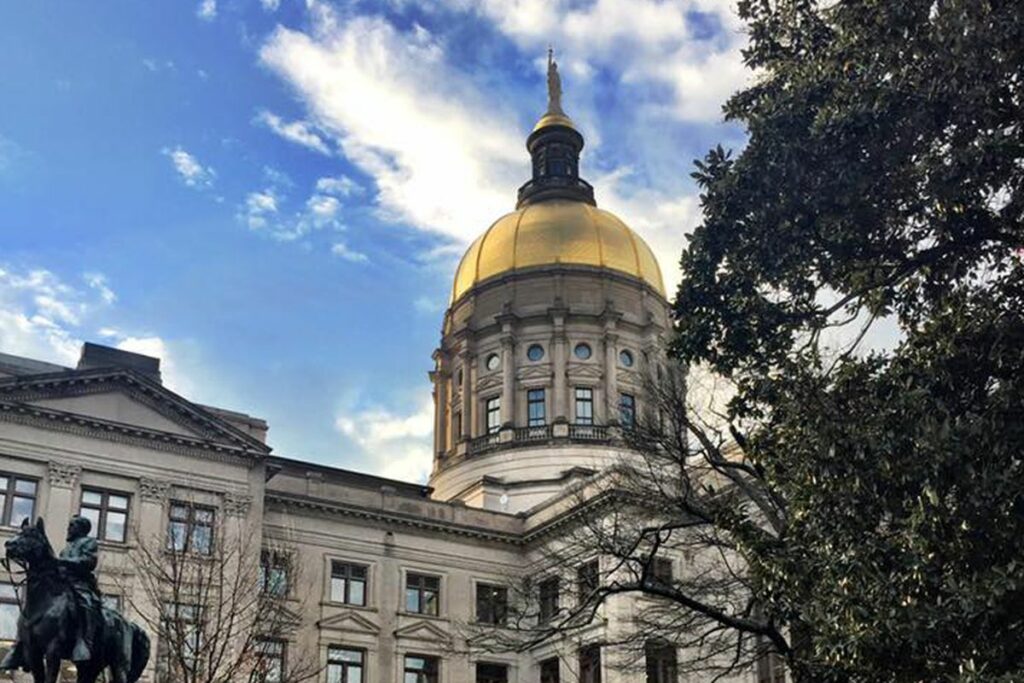
ATLANTA – Gov. Brian Kemp’s $32.5 billion mid-year budget is a step closer to final passage.
The Georgia Senate passed its version of the spending plan Thursday by an overwhelming 54-1 margin.
The mid-year budget, which covers state spending through June 30, is highlighted by $1 billion in property tax relief Kemp promised on the campaign trail last year. It also includes $1.1 billion to backfill the revenue the state lost last year and at the beginning of this year from the governor’s temporary suspension of Georgia’s sales tax on gasoline and other motor fuels.
The mid-year budget increases spending about 6.8% over the fiscal 2023 budget the General Assembly adopted last spring, about even with the rate of inflation since then.
“This is very much in line with where we’ve seen spending on a national level go,” Senate Appropriations Committee Chairman Blake Tillery, R-Vidalia, told his Senate colleges before Thursday’s vote.
The Senate version of the mid-year budget includes Kemp’s request to fully fund Georgia’s Quality Basic Education k-12 student formula (QBE), at $12.4 billion the largest single expenditure in the budget. After years of falling short of the mark, the state has been able to put up full funding of the QBE for the last several years.
The mid-year spending plan also includes $128.2 million to account for student enrollment growth in Georgia public schools since last year.
The Senate rejected a proposal in the version of the mid-year budget the Georgia House passed early this month that added $23 million to the governor’s funding request for school security grants, enough to raise the grants from $50,000 for every school in the state to $60,000. Instead, the Senate went back to the $50,000 grants favored by Kemp.
Senators reduced Kemp’s request for $105 million for a new electronic medical records system at the Medical College of Georgia in Augusta to $50 million.
The Senate also added $50 million for transportation infrastructure needed to accommodate the Hyundai electric vehicle manufacturing plant being built in Bryan County.
House and Senate leaders now must work out their differences in the mid-year budget to get a final version to Kemp’s desk for his signature.
